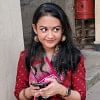
Maisha Syeda
Maisha Syeda is a writer, artist, lecturer at North South University, and sub-editor at Star Books and Literature.
Maisha Syeda is a writer, artist, lecturer at North South University, and sub-editor at Star Books and Literature.
When it comes to our fathers, especially the ones who try to be good men, a rampant affliction known as patriarchy has left us with no language to imagine them outside of what they were to others. Strip away the roles, and what’s left?
November 25, the International Day for the Elimination of Violence Against Women, marks the beginning of 16 Days of Activism against Gender-Based Violence which goes until December 10, Human Rights Day.
Bangladesh has gone through a day of historical proportions, and the people on the streets seem to know this.
What I wish I didn’t know is that when your dear friends whisper the word “psycho” behind your back, you’ll grow up accepting it.
A month ago, as I waited for a friend in Banani, I decided to grab a packet of cigarettes. I’m not good at calculations for loose change and the vendor, old and seemingly disoriented, was having a hard time too.
Once on a particularly smothering hot day, on a CNG ride to work, I was stuck in the most heinous traffic for over two hours. Over the yelling drivers, honking cars, and incessant cursing over why the CNGs were trying to overtake the expensive cars, I was listening to my usual cycle of songs. As coincidence would have it, David Gilmour in his seraphic voice posed the question: “So, so you think you can tell/ Heaven from hell?”
His face was growing warmer, it seemed as though the intangible entity that was stinging his closed eyes was growing stronger.
It’s hard to find a partner. It’s harder to make friends.
In a discerning recollection of events, esteemed retired banker Anwarul Amin has released his memoir about opening the first branch of a Bangladeshi bank abroad.
In an intimate ceremony held at the Bangladesh Shilpakala Academy on December 4, national award-winning dancer, choreographer, and stage performer Kajol Ibrahim launched her memoir, Nritte Gantha Kotha Mala, published by Ramon Publishers.
On November 27, Saturday at 7 PM, Gyantapas Abdur Razzaq Foundation hosted its fifth episode of their discussion series,‘Bidyapeeth Baithaki: Antaranga Alape Gunizan, online’. The topic of this week’s episode was ‘Crack Platoon: The Freedom Fighters of Dhaka’.
Three days ago when I woke up in the morning to get ready for work, I stood on my balcony and felt a slight, familiar nip in the air.
The South-African novelist and playwright had been previously shortlisted for his books, The Good Doctor (2003) and In A Strange Room (2010) in their respective years, the former of which received the Commonwealth Writers Prize.
The Department of English and Humanities, University of Liberal Arts Bangladesh (ULAB) has organised a two-day International Virtual Colloquium on October 30 and 31 entitled “From ‘Kabuliwala’ to the Fall of Kabul: Afghanistan in Popular Imagination”.
Tanveer Anoy’s second novel, Duradhay (Anandam, 2021), felt like a punch to my stomach; a wake up call, to be more precise.
The Unpublished PhD lecture series, organised by Gyantaposh Abdur Razzaq Foundation, resumed on October 12, 2021 at 7 pm over Zoom after a two year hiatus due to the Covid-19 pandemic. In its eighth episode, researcher and professor of Anthropology at Jahangirnagar University, Manosh Chowdhury, gave an illuminating talk on his doctoral thesis: “Popularizing Project: Some Aspects of Production of Culture and Discourses in Bangladesh”.
On the morning of Thursday, October 7, University of Liberal Arts Bangladesh saw the launch of ULAB Press with its maiden publication, Commemorating Sheikh Mujib: The Greatest Bengali of the Millenium (2021).